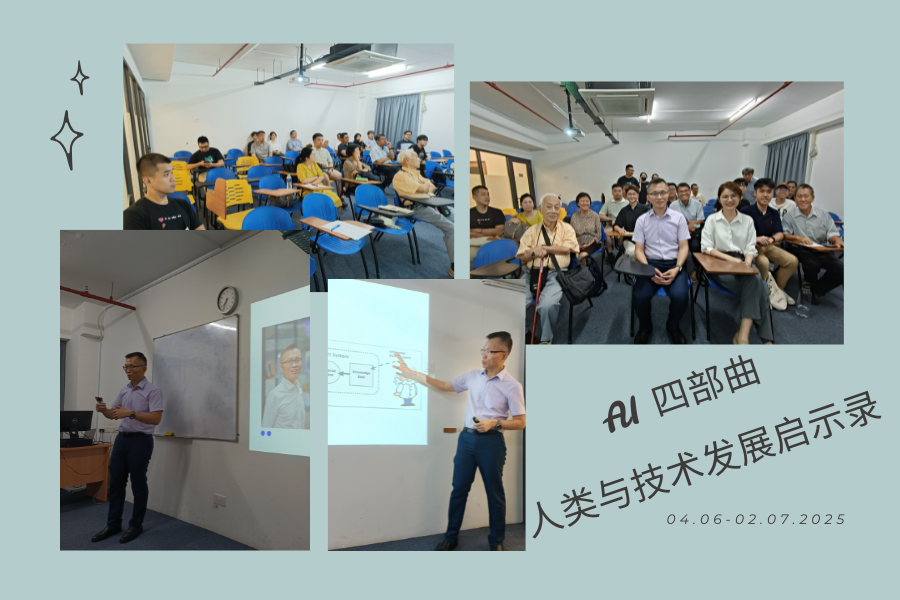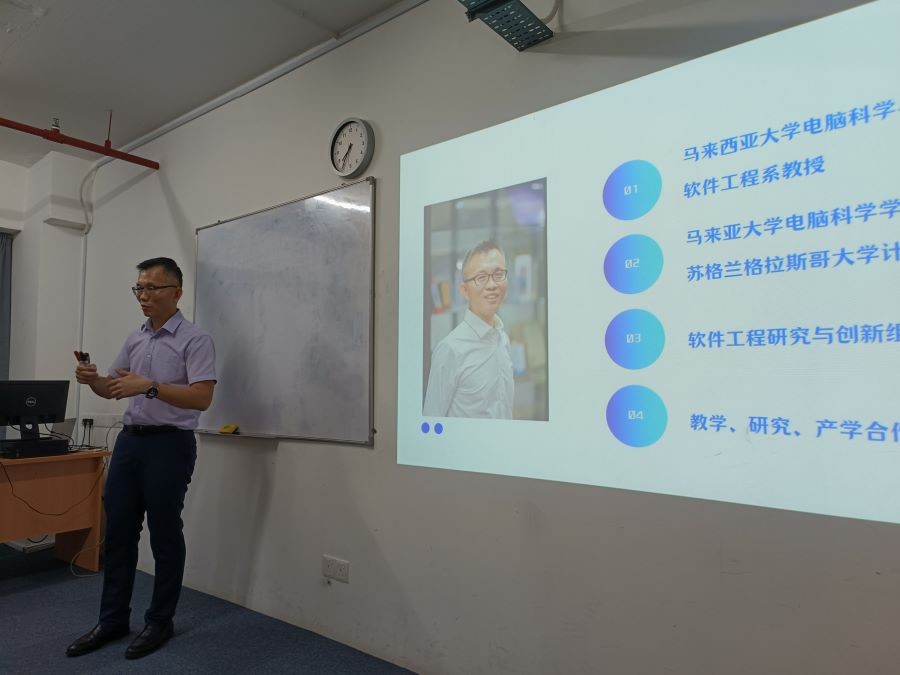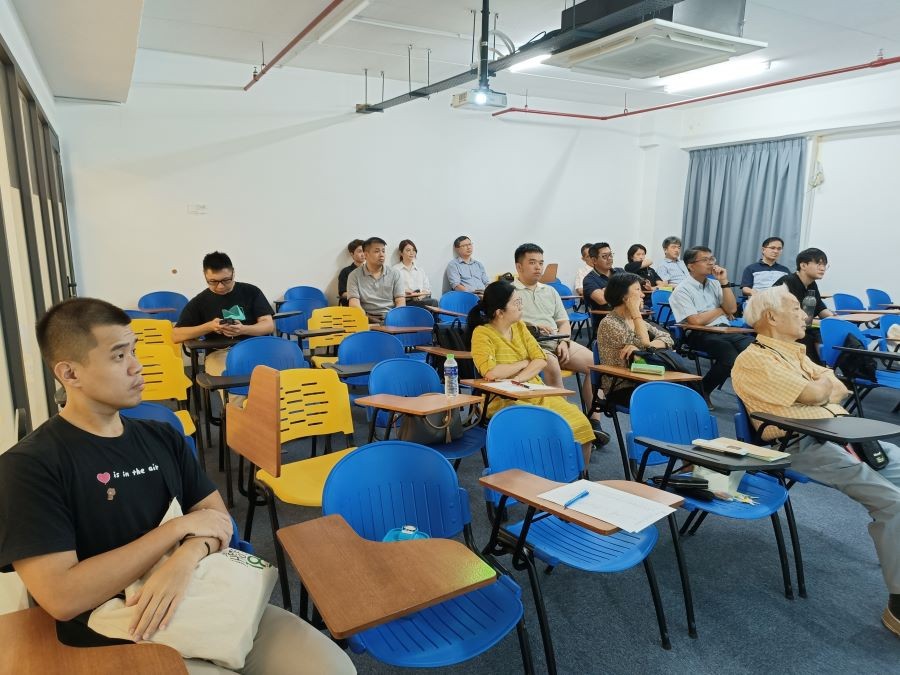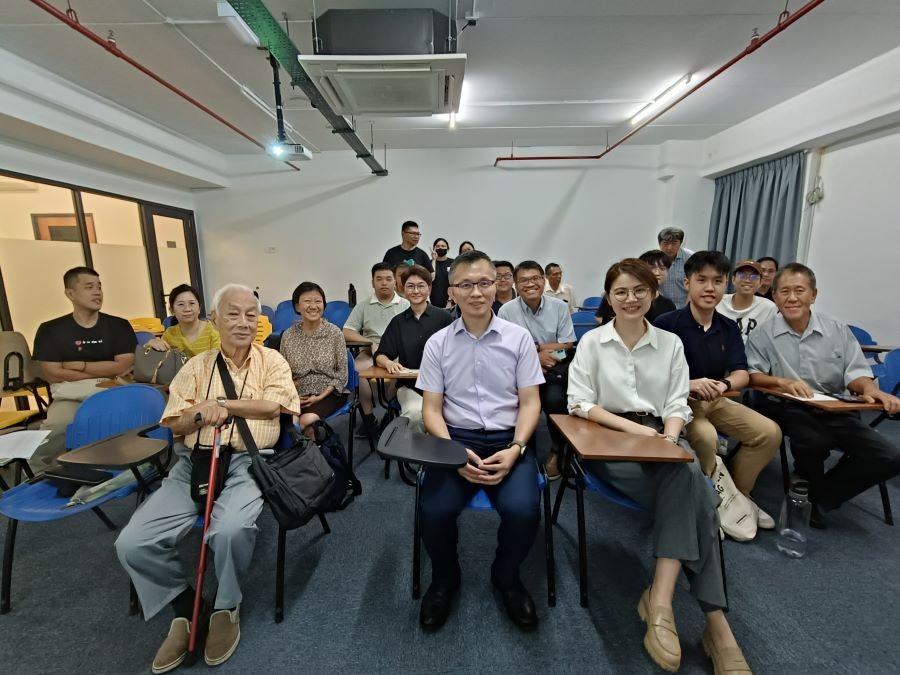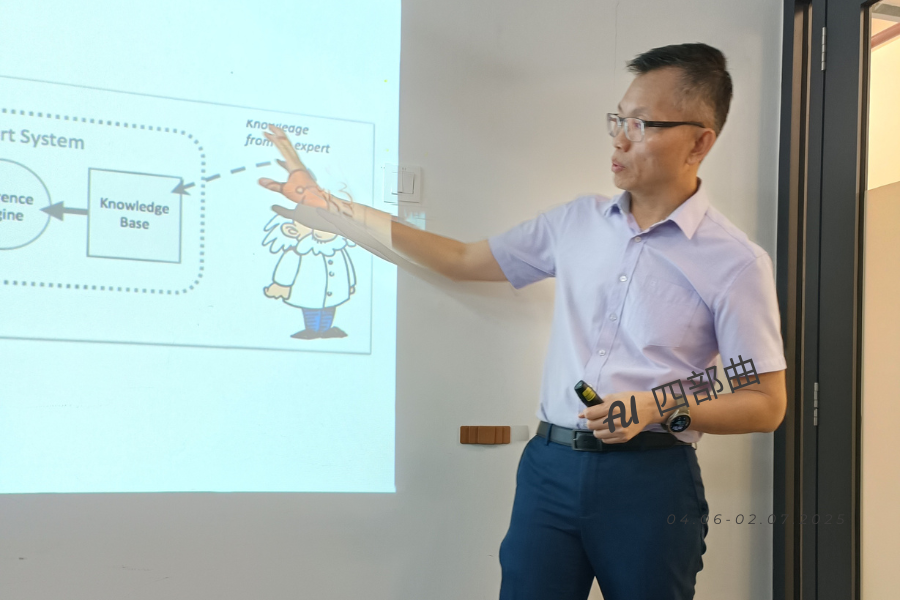AI Course Completed Successfully
In the "Hanxin Lecture Series" in June, Oneworld Hanxin College invited Professor Chiew Thiam Kian from the Department of Software Engineering, Faculty of Computer Science and Information Technology, University of Malaya to give a lecture on "AI – Reflections on the Evolution of Humanity and Technology".In the first class, Professor Chiew shared with the students the main stages of AI, namely logicism (1950s~1960s), expert systems (1970s~1980s), machine learning (1980s~2000s), deep learning (2010s~) and generative AI multimodal intelligence (2020s~). Artificial intelligence at different stages can be divided into three main schools, symbolism, connectionism and evolutionism.
He pointed out that the summer artificial intelligence research project in 1956 made artificial intelligence the starting point of an independent discipline.
Then in the second class, there was an explanation on the technical level. The large language model is a very large and very deep artificial neural network specially designed for processing natural language. Humans use a lot of AI content to feed back into AI models, which leads to self-circulation of models, information degradation, and reduced diversity, thus causing model collapse.
Large language models also have their problems. The more parameters are used, the longer the training time is, the higher the carbon emissions and electricity costs are, and the more expensive each call is.
Professor Chiew also shared some research and reports that warn against AI, and pointed out that the statistical model of large language models cannot fully replicate all the human functions of intelligence.
In the last class, Professor Chiew approached the issue of science and technology from a humanistic perspective, proposed AI scenarios in daily life, and asked students to discuss whether AI reduces human work, AI privacy and information security, ethics and trust, and other issues.
